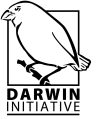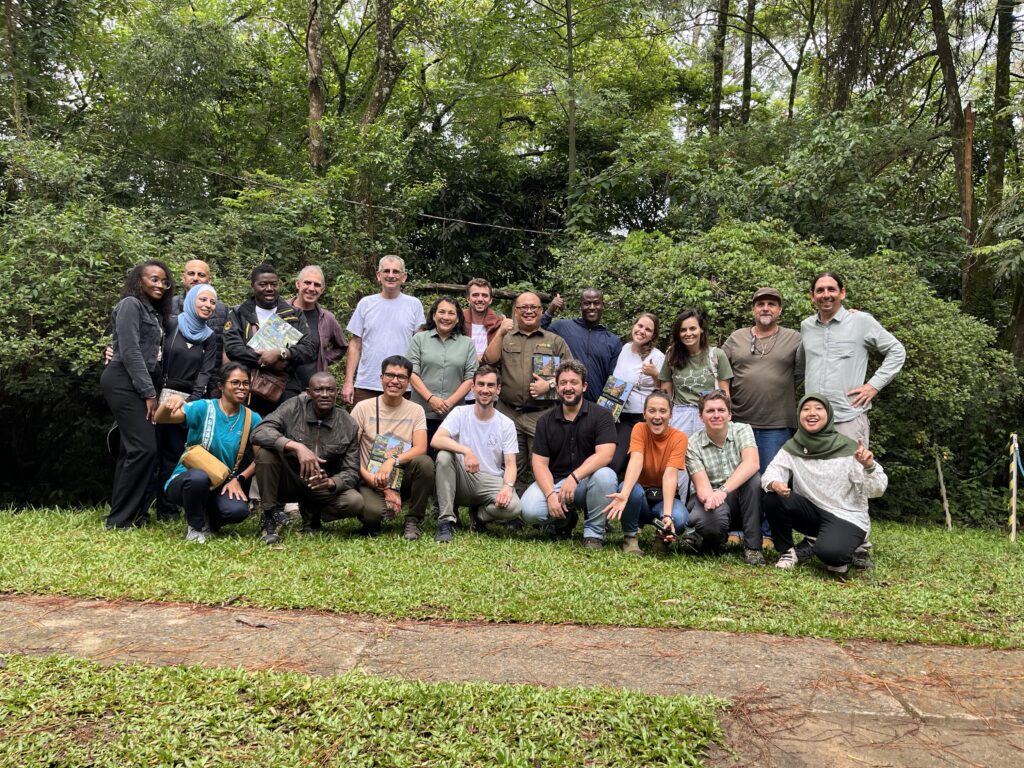
July 2024 Newsletter
Welcome from The Global Biodiversity Standard Project Manager
Welcome you to this edition of The Global Biodiversity Standard (TGBS) newsletter. The past few months have been productive and exciting for us, marked by several significant milestones.
In June, we published the highly anticipated TGBS manual, a comprehensive resource developed over 2 years through the collaboration of our partners and experts. This manual sets a new benchmark for biodiversity outcomes in restoration projects. Alongside its release, we have published the results of our public consultation, which highlighted strong support for our methodologies. Additionally, we are hosting a webinar on 22nd July to officially launch the manual.
We have implemented training events at our hubs in Brazil, India, Kenya, Madagascar and Peru, certifying 47 hub members as assessors. Our hub partners have been highlighting their work with features on the Unearthed podcast, presentations at the 4th Subsidiary Body on Implementation of the CBD, participation in the Nairobi Climate Network Carbon Summit, and school outreach events. We are also excited to announce the opening of a new hub in Hong Kong (China) at Kadoorie Farm and Botanic Garden.
As we prepare for the official launch at COP-16, we are seeking early adopters to implement the TGBS methodology in their projects. This is a unique opportunity to lead global biodiversity restoration efforts and benefit from tailored support and resources. We are also offering sponsorship opportunities for organisations looking to support our launch at COP-16. Reach out to learn more about becoming an early adopter or sponsor.
Thank you for your ongoing support. Together, we’re helping to protect, enhance and restore biodiversity.
David Bartholomew, Global Biodiversity Standard Project Manager

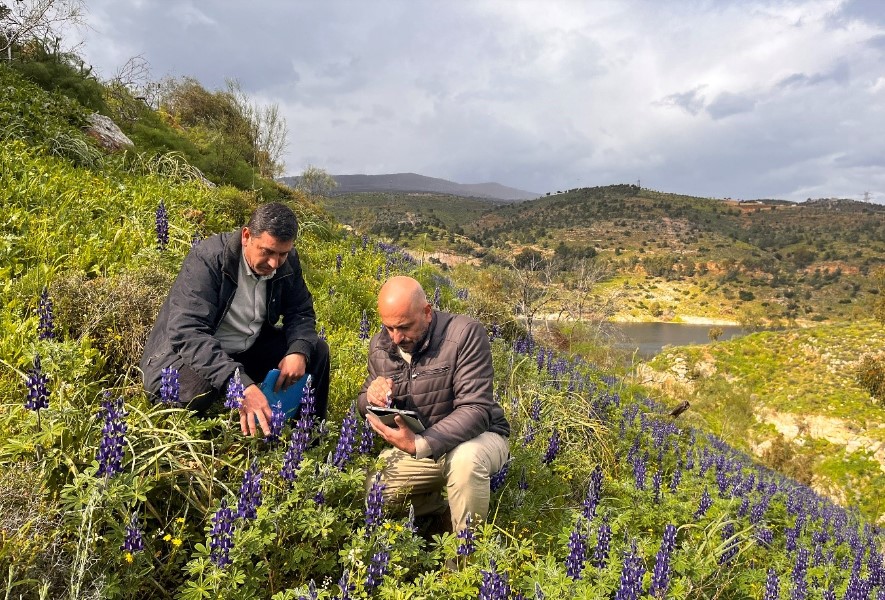
Upcoming Webinar: 22nd July 2024 at 3pm BST - Advancing biodiversity outcomes: Unveiling The Global Biodiversity Standard Manual for assessment and best practices
By David Bartholomew, The Global Biodiversity Standard Project Manager, BGCI
Mark your calendar for July 22nd for a webinar hosted by The Global Biodiversity Standard (TGBS) partners, in collaboration with the Society for Ecological Restoration (SER) and Botanic Gardens Conservation International (BGCI). This event coincides with the release of our highly anticipated manual, “The Global Biodiversity Standard: Manual for Assessment and Best Practices,” available since 18th June.
The webinar will explore the unique features and advantages of TGBS, a site-based certification methodology designed to assess the impacts of tree planting, restoration, and sustainable agricultural initiatives on biodiversity. TGBS stands apart by focusing on comprehensive biodiversity assessments, incorporating both ecosystem integrity and social benefits. Key discussions will include the innovative use of field surveys, the practical application of the ecosystem integrity and social benefits wheel, and the development of a novel protection system.
Participants will gain insights into how TGBS uses remote-sensing and ground surveys conducted by ‘TGBS hubs’ in Brazil, Hong Kong (China), India, Jordan, Kenya, Madagascar, Malaysia, Peru, and Uganda, located in well-established biodiversity and ecological restoration organisations. The webinar will also showcase the assessment of management practices in line with the UN Decade Standards of Practice to guide ecosystem restoration and the Restoration Project Information Sharing Framework.
Our expert panel will provide an in-depth overview of the manual, demonstrating how the assessment methodology works and how sites will score against the standard’s eight criteria. The webinar aims to equip conservationists, ecologists, and environmental managers with the knowledge and tools needed to implement these best practices and achieve certification under TGBS.
Register now to join us in advancing standards to protect, enhance, and restore biodiversity.
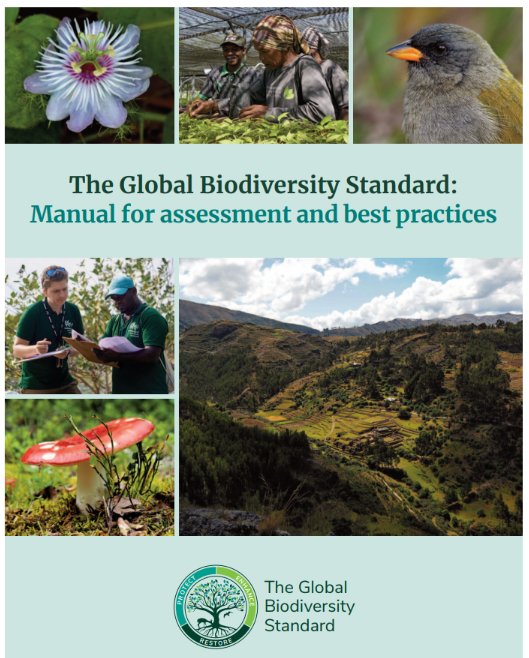
Celebrating the Successful Launch of The Global Biodiversity Standard Manual
By David Bartholomew, The Global Biodiversity Standard Project Manager, BGCI
The Global Biodiversity Standard (TGBS) Manual was published two weeks ago and the response from the global community has been overwhelmingly positive. This comprehensive resource, developed in collaboration with leading organisations and experts, aims to set a new benchmark for biodiversity outcomes in tree planting, forest restoration, agroforestry, and other restoration initiatives.
Since its release, the TGBS Manual has garnered significant attention from practitioners, researchers, and policymakers worldwide with over 1500 downloads in the first week. The manual, which underwent rigorous testing across diverse ecosystems and land uses, provides robust methodologies for assessing and enhancing biodiversity impacts. It has already been praised for its practical guidance and its potential to drive high-quality restoration projects globally.
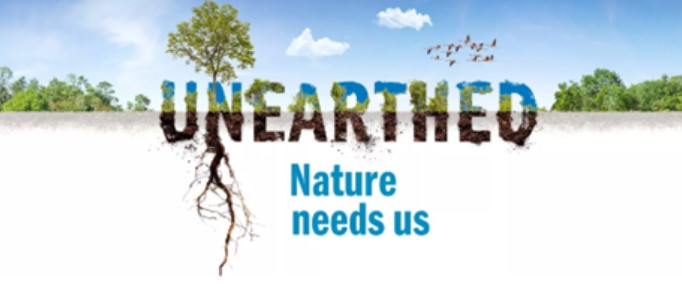
Podcast: UnEarthed - Nature Needs Us
By Luiz Baqueiro – Jardim Botânico Araribá – Brazil
This June, the spotlight on the UnEarthed Podcast by Royal Botanic Gardens, Kew was firmly fixed on Biodiversity. Representing The Global Biodiversity Standard (TGBS) were Luiz Baqueiro from the Jardim Botânico Araribá (the Brazilian Hub) and Teresiah Mungai from CER-Kenya (the Kenyan coastal hub). Their participation in this enlightening event allowed them to share the TGBS vision and underscore the intrinsic connection between biodiversity and humanity.
During the episode, we delved into the intricate web of biodiversity loss: what it truly entails and why safeguarding what remains is of paramount importance. We explored the potential consequences if we continue to underestimate the impact of climate change and habitat destruction on our lives and the future of our planet. Moreover, we examined how human actions have propelled us into the twin crises of biodiversity loss and climate change.
Scientific research and actionable steps at various societal levels were discussed as part of the ongoing efforts to decelerate or halt these detrimental processes. The TGBS ethos, aligned with these critical issues, took center stage. Our aim was to deepen our collective understanding of the real-world impacts on biodiversity and to emphasize nature-positive actions.
Kadoorie Farm and Botanic Garden, Hong Kong joins the Asia TGBS Network
By Fernanda Cardoso – Kadoorie Farm and Botanic Garden – Hong Kong
Kadoorie Farm and Botanic Garden (KFBG) is a Hong Kong-based nature conservation and environmental education NGO. Its site spans 148 hectares of land on the northern slopes of Tai Mo Shan, Hong Kong’s highest mountain. Originally established in 1956 as the Kadoorie Agricultural Aid Association (KAAA) to provide agricultural aid to farmers in need of support to help them lead independent lives and to provide leisure and educational experiences for the public, KFBG’s work and influence gradually spread far beyond its site, and in 1995 it was reborn as a botanic garden with a strong scientific remit.
Nowadays, the organisation raises awareness of ecological and sustainability issues, undertakes species conservation and ecosystem restoration in Hong Kong, mainland China and neighbouring countries, inspires people to reconnect with nature, and promotes sustainable lifestyles. The site features various conservation and education facilities including a native tree nursery, an herbarium, garden displays, educational live animal exhibits, laboratories and a wild animal rescue centre. KFBG boasts a dedicated team of experienced botanists, zoologists, ecologists and horticulturalists whose expertise includes species in situ and ex situ conservation, taxonomy, red listing, nursery management, restoration ecology, orchid ecology, rare species propagation and reintroduction, remote sensing and conservation genetics.
In the past two decades, KFBG has been home to a carefully managed restoration initiative, where science and practice meet to restore healthy, functional and diverse tropical forest, of the sort that once covered Hong Kong’s mountain slopes and valleys. This initiative is unprecedented in Hong Kong and has spearheaded the development of both applied scientific and horticultural understanding for the planting and growing of more than 1000 native plant species in mixed communities, the restoration of soils and the synthesis of adaptive management to respond to unforeseen challenges. With the application of hands-on horticultural expertise combined with a scientific, evidence-driven approach, KFBG seeks to build a model for best practice in the restoration of native tropical forests in Hong Kong, South China and the wider region.
KFBG now joins the TGBS hub network, covering Hong Kong and the Southern China region.
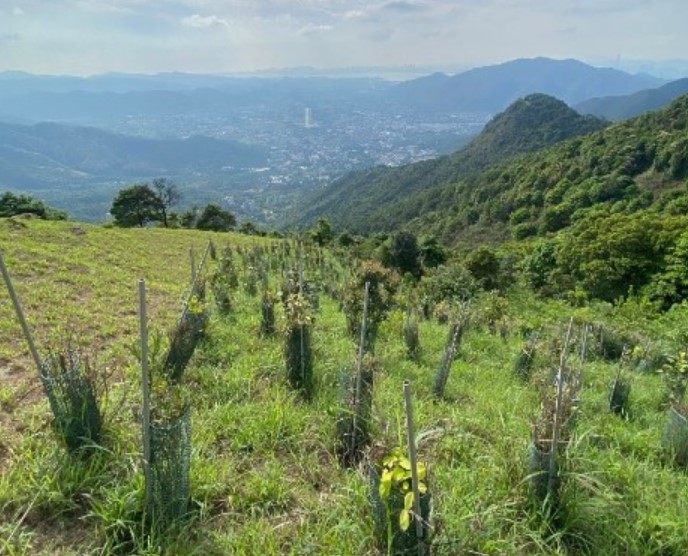
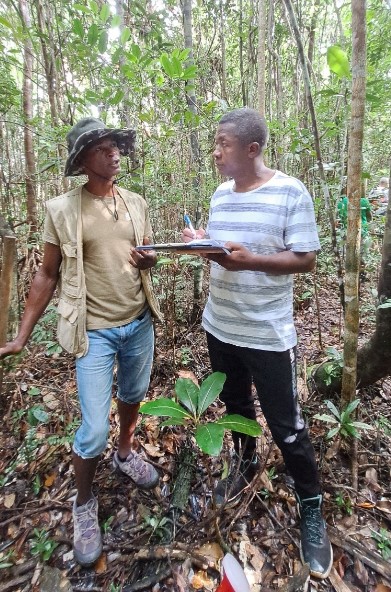
Empowering Malagasy and Kenyan TGBS Assessors
By Narindra Ramahefamanana, Missouri Botanical Garden – Madagascar and Teresiah M. Mungai, Centre for Ecosystem Restoration Kenya
An approach central to TGBS is the creation of national hubs that can function in mobilising local experts in the assessment of ecological restoration projects. Compared to international experts, locals are likely to be more knowledgeable concerning the ecology and biodiversity of their home landscapes and will also have a better understanding of socio-economic issues too. Costs of using local experts will be much lower than using international experts and working for a prestigious project like TGBS, will build local capacity. However, it is also important that TGBS certification is a global standard and therefore all those who work as assessors, no matter where they live, follow the same evaluation protocols. To nurture global equality of evaluation, TGBS invested in training trainers from each hub, then these newly certified trainers were tasked with training assessors who would then, together, constitute the hub. The Madagascar Hub followed exactly this process and in March 2024 selected seven Malagasy graduate biologists from among those who had responded to an advert in a national newspaper. These seven were trained over seven days at Analalava Protected Area in assessing ecological restoration projects using TGBS protocols as expressed in the newly published Manual. Following examination at the end of the training all were certified. The Madagascar Hub is now ready for action.
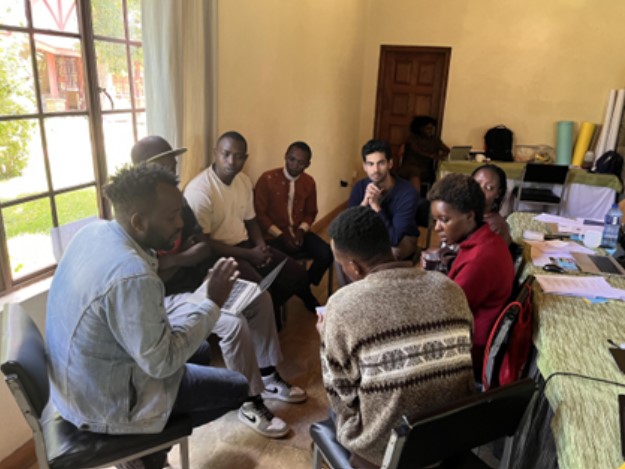
In February, the Centre for Ecosystem Restoration Kenya (CER-K) saw three of its members – Andrew Gichira, Jonathan Jenkins, and Teresiah Mungai – certified through The Global Biodiversity Standard (TGBS) as trainers in Kenya. These trainers are also Certified Ecological Restoration Practitioners in Training (CERPIT) through the Society for Ecological Restoration (SER), constituting three out of six certified practitioners in Kenya. Following their certification, they conducted a TGBS assessor training session involving a diverse group of 13 participants, including 6 women. This training aimed to equip assessors with essential skills and knowledge for effectively promoting and implementing TGBS across Kenya’s distinct ecoregions: Savannah Region, Coastal Kenya, and the Highlands of Kenya. The diversity of the participants representing these varied ecoregions ensured comprehensive coverage and familiarity with the ecosystems critical to promoting TGBS. This training was pivotal in enhancing the participants’ ability to support best practices in biodiversity conservation and sustainable practices within their regions.
TGBS at the Fourth meeting of the Subsidiary Body on Implementation (SBI-04) of the CBD - 22 May 2024
By Teresiah M. Mungai, Centre for Ecosystem Restoration Kenya
Plantlife International hosted a side event during the Convention on Biological Diversity’s fourth meeting of the Subsidiary Body on Implementation to discuss the Global Strategy for Plant Conservation as a tool for implementing the Kunming-Montreal Global Biodiversity Framework (GBF). High-level opening remarks were given by Dr David Cooper, Acting Executive Secretary of the CBD and co-author of the foreword in the TGBS manual, followed by presentations on how the Global Strategy for Plant Conservation supports governments in achieving the GBF targets. Speakers included Andrew Gichira from CER-K, China Williams from Royal Botanic Gardens Kew, and James Kalema from the University of Makerere. Andrew highlighted efforts to restore and conserve biodiversity with support from TGBS and the Franklinia Foundation.
Carbon Summit: Uniting Industry for Action & Solutions - Nairobi, 19 June 2024
By Teresiah M. Mungai, Centre for Ecosystem Restoration Kenya
The Nairobi Climate Network hosted an immersive carbon markets industry summit in Brackenhurst, Limuru, bringing together carbon stakeholders in Kenya for a full day of interactive discussions and workshops. The summit aimed to update participants on regulations, initiate collaborative actions, and shape the roadmap of the newly established Carbon Markets Association of Kenya. The summit also covered the latest regional developments and opportunities for East African collaboration on carbon markets. The participants, including Quinter Peres and Jonathan Jenkins of the Centre for Ecosystem Restoration-Kenya, observed that the context of The Global Biodiversity is crucial, emphasising the need for collaborative efforts to protect and enhance ecosystems.
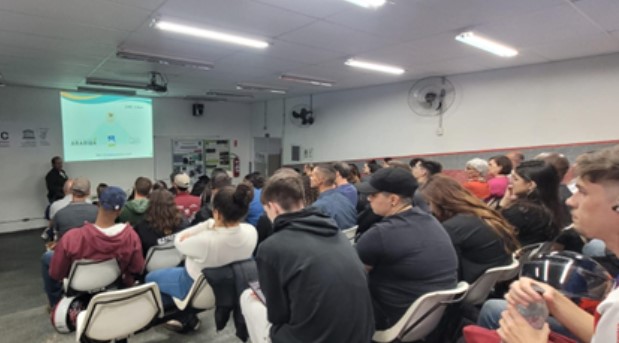
Jardim Botânico Araribá spreads the word about The Global Biodiversity Standard
By Luiz Baqueiro – Jardim Botânico Araribá – Brazil
During the past month, the Araribá Botanical Garden, represented by its Director General, Guaraci M. Diniz Jr, actively participated in two significant events. These engagements allowed us to address diverse audiences, each with distinct backgrounds, and delve into the critical interplay between biodiversity and the climate crisis. Additionally, we highlighted the ongoing conservation and environmental restoration efforts that have been meticulously nurtured over the years.
The intrinsic need for societal involvement and engagement remains at the core of our activities. Our commitment extends beyond the confines of our garden, reaching out to communities and individuals who share our concern for the planet’s well-being.
The first event catered to a young audience with a strong technological inclination. Held at the ETEC (State Technical Schools), it provided a platform to discuss the intersection of technology, biodiversity, and climate resilience. The second presentation, a heartfelt tribute to Ana Maria Primavesi, a trailblazer in Brazilian agroecology, resonated with practitioners and enthusiasts alike. Despite seemingly disparate backgrounds, both audiences converged on a common concern – the urgent need to address the climate crisis and navigate the complex web of environmental challenges.
In these engaging sessions, Guaraci emphasized the pivotal role of the The Global Biodiversity Standard (TGBS). This innovative tool not only supports restoration initiatives but also lends credibility to our collective efforts in combating the crisis we face. By disseminating the TGBS as a resource for informed decision-making, we empower advocates and amplify our impact on biodiversity conservation.
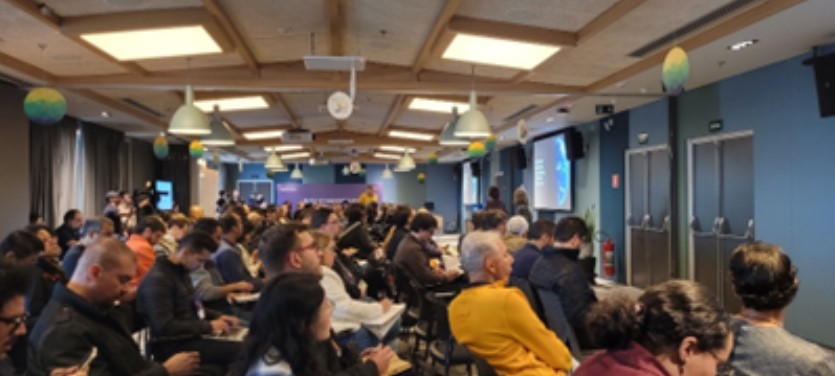
AI for ChangeMakers by Microsoft Philanthropies
By Luiz Baqueiro – Jardim Botânico Araribá – Brazil
Araribá Botanical Garden was invited to participate in the AI for ChangeMakers event by Microsoft Philanthropies at the Microsoft Brazil headquarters in São Paulo. The event served as a platform to highlight the transformative potential of Artificial Intelligence (AI) and its practical applications within non-governmental organizations (NGOs). Diverse topics were explored, including AI’s role in fostering social inclusion, enhancing accessibility, and addressing critical challenges such as the climate crisis and biodiversity loss. The event aimed to showcase the benefits of AI and how to implement it in NGO routines through its tools, as well as to present existing initiatives and projects utilizing them. Key topics discussed included the use of AI for social inclusion and accessibility, application in education, and its role in combating the climate crisis and biodiversity loss.
Lúcia Rodrigues, the head of Philanthropy for Microsoft Brazil, who spearheaded efforts to combat deforestation presented how AI is using data collected from the field to create a new road monitoring system for the Amazon rainforest.
The appearance of roads within vegetated regions often signals the onset of deforestation, necessitating urgent conservation measures. By training AI models to analyze geo-statistical data and employ spatial modelling, actionable insights are generated. These insights empower decision-makers with information for targeted interventions, prevention strategies, and impact assessment.
This innovative approach exemplifies how AI, when combined with existing tools like the TGBS, can yield substantial results in the ongoing quest for biodiversity recovery. As we continue to harness technology for positive change, collaborations like these underscore the vital role that technology can play in safeguarding our planet’s natural treasures.

KEFRI and CER-K Review their collaboration
By Teresiah M. Mungai, Centre for Ecosystem Restoration Kenya
On 6th March 2024, the Centre for Ecosystem Restoration Kenya (CER-K) and the Kenya Forestry Research Institute (KEFRI) held a collaboration progress review and preparation session for the Eco-Regional Research Consultative Committee, focusing on Article 3 of their Memorandum of Understanding (MoU). Both organizations aim to advance conservation, forestry, and environmental management by developing joint research initiatives and capacity-building efforts. They also plan to raise awareness about TGBS. CER-K is currently training TGBS assessors and proposed extending this expertise to train KEFRI’s staff. Initiatives like establishing permanent sample plots (PSP) exemplify their innovative approach to advancing scientific understanding and practical conservation efforts.

